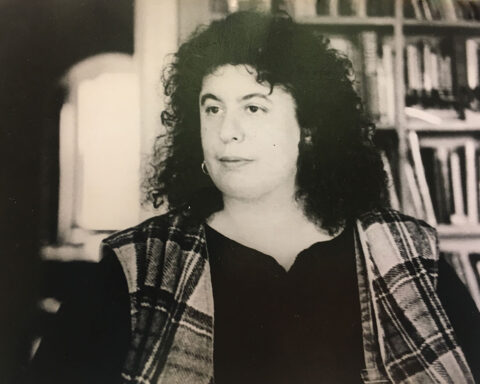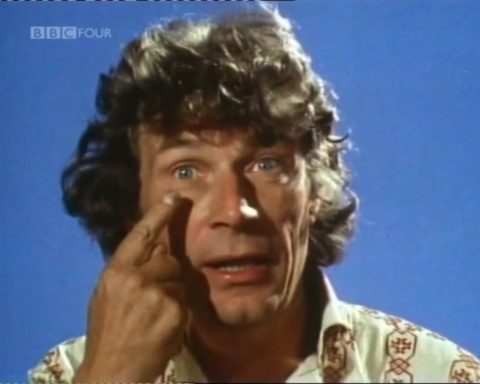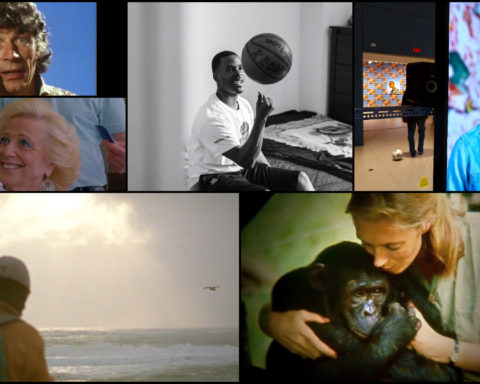Many of our readers are familiar with the major documentary festivals: IDFA (International Documentary Filmfestival Amsterdam), Hot Docs (Toronto), Sheffield, DOXA (Vancouver), RIDM (Rencontres international du documentaire de Montreal). There are many other festivals that feature a particular type of documentary: for example, such “green” festivals as The Environmental Film Festival (Washington DC) and Planet In Focus (Toronto). And some of the general film festivals, including Toronto, Vancouver and Berlin include screenings of some of the year’s top documentaries. For both filmmakers and audiences, it seems like a crowded calendar.
Yet there are reasons to attend a festival that showcases a wide range of documentaries from places and people you may never have heard of, and with an audience that has a different perspective.
The Thessaloniki Documentary Festival, in a major city in Greece, is a spring festival operated by the same organisation that offers an international film festival in the fall. The group owns and operates a cinema on the city’s main square along with an entire complex of former warehouse buildings on the waterfront. Along with four more cinemas, the area also has a museum of cinema and television, a superb photography gallery and a small but interesting gallery for contemporary art. The latter put together a fine exhibition to honour the late novelist, art critic and artist John Berger.
The programming is as multi-faceted as you would expect, with a natural emphasis on Greek films and filmmakers and a less expected focus on films from Eastern Europe and other Mediterranean countries. This year the strands included films on Human Rights, Memory/History, Habitat, Food, and Music. There is a very strong children’s program as well.
True to the nature of Thessaloniki, there is also an amazing lineup of special events including a street party in the nearby, historic food market (worth a visit at any time) with live music. From book launches to master classes, cocktail receptions to guided tours and featured dishes in many of the downtown core’s fine restaurants, the Thessaloniki Documentary Festival is a feast for those who love culture and excellent cuisine.
On my second visit to the festival, I passed up on the opportunity to take guided tours to learn about the history and architecture of the region and focused on seeing films. Every screening was well attended, and many were packed. The Q&As after the screenings were impressively multi-lingual. The festival staff or volunteer interpreters seemed to speak English easily and there were many who were conversant in whatever the filmmaker’s first language was, whether Spanish, German or Russian. For those who attend festivals all over the world and experience the frustration of trying to get tickets, Thessaloniki is a dream: all the box offices are on the same computer system. You can obtain or change tickets at all of the cinemas as well as at a central box office (literally in a glass box) in the central square.
A few films stood out. Two told familiar stories of the fight of indigenous people against global capitalism and corrupt politicians. The Borneo Case has a Canadian connection, as one of the Indigenous leaders fighting to maintain his people’s tropical forest home lives in exile in Montreal. A Tale of Two Worlds recounts the story of a violent encounter between Indigenous people and police–both in some ways duped by the politicians–in a dispute over ownership and use of a river in Peru.
Another ‘Indigenous’ person attempting to make a difference in her community is featured in Dil Leyla, an impressive student film by German-Turkish filmmaker Asli Özarslan. The film begins optimistically, showing the young Leyla Imret, the Mayor of Cimre as she attempts to develop her hometown, which is in the Kurdish area of Turkey. Imret had left Cimre as a child to live with relatives in Germany in order to escape the political violence that claimed her father. She had only recently returned and won election as mayor in a landslide. Soon, however, the central government turns once again against the Kurds and by the end of the film, the town is besieged and then bombed. Imret has disappeared and is presumed under arrest. The film is remarkable for its depiction of a young woman trying to be a leader and lead a normal life in extraordinary circumstances.
Poi E: The Story of Our Song, from New Zealand, provided light relief, this time showing how Indigenous people can succeed in reclaiming their language and culture. Dalvanius Prime was a soul-singing Maori star living in Australia when he decided to go home and find his own voice. He met an inspirational teacher of the Maori’s language and collaborated with her to write a song that became popular around the world. The film celebrates a song that reinvigorated a people and a culture and has become an unofficial anthem for a country.
A notable pleasure of attending the Thessaloniki Documentary Festival comes before and after the screenings, as one strolls along the Promenade that stretches for many kilometres around the waterfront. There are relics new and very old: hamams from the Ottoman era; department stores from the early twentieth century; the agora built in the 3rdC BCE. (The metro is taking decades to build because of the 20 layers of artifacts to be carefully sifted before work continues.) The entire city, and tens of thousands of the students who attend university there, fill the plazas, cafes and restaurants. The food is fresh and delicious: grilled fresh fish and seafood; grilled meat; salads; pastries for dessert. I still dream of the breakfast buffet offered at the hotels, with local preserves and fresh fruit topping the delicious, thick yogurt as well as the usual European spread (cold cuts, eggs, fresh vegetables and fruit, lots of different breads and pastries).
Thessaloniki is reached by air via Athens or Munich. It’s well worth the trip.











